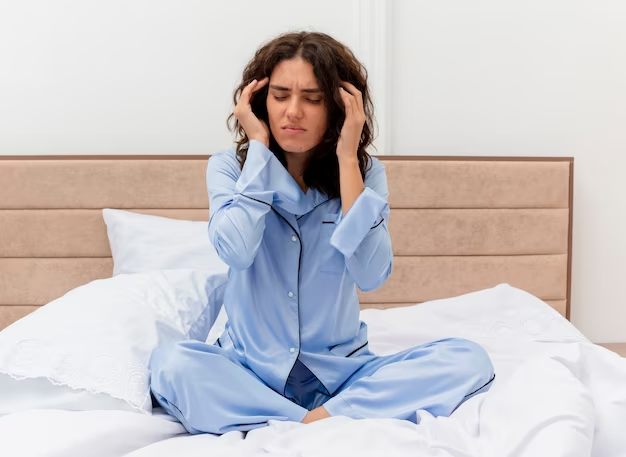Weight can have a big impact on the early-morning stimulating experience, setting the tone for the entire day. When stress reaches the evening, it throws off the regular cycles of sleep and often leads to restless or fragmented sleep. During stressful times, if you feel sleepy, take a Modalert tablet to help you stay awake and focused. The people who have resisted pressure-initiated sleep-inducing factors may end up awakening with a sense of weakness rather than reward when the alarm goes off in the morning.
Pressure’s waiting effects might cast a shadow over the energizing system, impairing imperativeness generally as well as mental clarity and mood. Instead of waking up feeling ready to take on the day, those struggling with pressure-related sleep issues may find it challenging to muster the energy and focus needed for a productive and pleasant morning. Recognizing and addressing the impact of weight on the stimulating experience is essential to developing a more robust and restorative daily routine.
According to the Pressure Sleep Association, stress can upset the delicate balance necessary for restful sleep. Select Waklert 150 mg to address the issue of excessive daytime sleepiness. Elevated anxiety is a reaction to demands from a job, personal concerns, or global events. It causes the body’s primary stress chemical, cortisol, to enter the body, interfering with the regular cycle of rest and wakefulness.
Stress and Rest Design
Stress affects not just how much sleep we get but also how well we get it. Stress-related disruptions can lead to fragmented sleep, less time spent in the beneficial stages, and a higher likelihood of waking up feeling sleep-deprived.
The Infinite Loop
An input circle that is striving to break can be created when unlucky rest increases pressure. Lack of sleep intensifies reactions that occur close to home, making stressors seem more significant and starting a loop that spreads.
Methods for Reducing Stress
It’s crucial to have a peaceful before-bedtime routine. Techniques such as gentle stretching, thoughtful thinking, or taking a hot shower might signal the body that it’s time to decompress and reduce anxiety before bedtime.
Creating a Safe Haven for Rest
One way to create a conducive environment for rest is to reduce pressure points. Maintain a cold, quiet, and dark environment. You may want to get rid of any electronics that could raise your blood pressure before bed.
Care-Based Pressure Reduction
By incorporating care practices into daily life, such as deep breathing exercises or introspection, one can considerably influence pressure reduction, promoting improved sleep and clarity in the morning.
Limiting Energizers and Screen Time
Too much screen time and caffeine right before bed can increase anxiety and interfere with sleep. Setting deadlines for these activities can help create a more relaxing atmosphere before bed.
A predictable sleep schedule improves morning clarity and promotes a more restful night’s sleep by regulating the body’s internal clock.
Clearness techniques for waking up
Setting up certain morning routines, like gentle stretching, gratitude exercises, or a filling meal, can create a positive atmosphere for the afternoon and relieve any residual stress from the evening.
Seeking guidance from a medical services professional or a sleep specialist can provide appropriate systems and mediations to break the pattern and focus on overall prosperity if stress-related sleep-unsettling effects persist.


 Welcome to Infinitive Creative where we share information related to Business, Tech and More. We’re dedicated to providing you the very best information and knowledge of the above mentioned topics.
Welcome to Infinitive Creative where we share information related to Business, Tech and More. We’re dedicated to providing you the very best information and knowledge of the above mentioned topics.